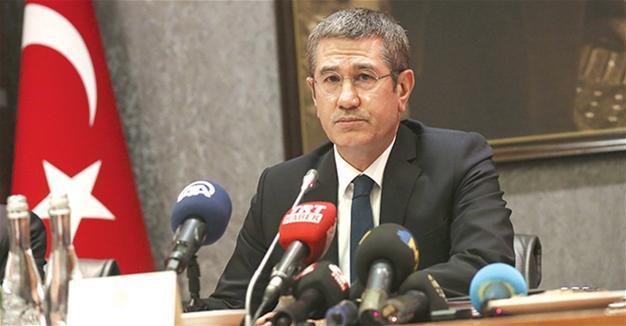Dollarization risk for Turkish economy easing: Deputy PM
ANKARA

AA photo
The dollarization risk for the Turkish economy has eased as the recent fluctuation in global capital markets is about to end, Deputy Prime Minister Nurettin Canikli said on Dec. 30.
The Turkish Lira became one of the world’s worst performing emerging currencies after Donald Trump won the U.S. presidential election in November.
Speaking in his opening speech at the Coordination Board for Improving Investment Climate meeting in Ankara, Canikli claimed that foreign exchange volatility would soon come to an end.
“The foreign exchange markets have now become more stabilized. The dollarization risk for the Turkish economy has significantly eased and become quite minimal now,” he added, as quoted by Reuters.
Canikli also noted that the robustness of the Turkish banking sector had been confirmed once again by the European Union.
According to Regulation (EU) No 575/2013 of the European Parliament and the Council of the European Commission’s Implementing Decision of the EU No. 2016/2358 from Dec. 20, Turkey’s banking supervisory and regulatory framework has been affirmed to be equivalent to EU standards.
In this vein, Turkey’s banks will have easier access to European funds with lower costs, noted Canikli.
He also referred to the latest economic incentive package, which was announced by Prime Minister Binali Yıldırım earlier this month.
“With the realization of this package, we will not allow any producers that have faced deterioration in their finances and/or cash flow to halt their production activities,” said Canikli.
The government revealed a series of measures on Dec. 8 aiming to revive the Turkish economy, which has been hit by a historic plunge in the lira, vowing to make 2017 a “saving year” for the public sector and introducing a large fund to boost the country’s credit volume and create 600,000 new jobs.
The government announced that it would introduce a credit line of up to 250 billion liras ($71 billion), especially aimed at SMEs, to ease the cash flow problem, under the leadership of the Treasury.
“The 250-billion-lira package is enough to realize our target. A total of 600,000 new jobs will be created by the end of 2017. We will see the outcomes of the economic incentives in the upcoming year. 2017 will be a year when the economy grows in Turkey,” Canikli said.
‘Geopolitical risks to ease’
He also noted that the geopolitical risks currently hitting the Turkish economy would start to ease in the upcoming year.
“The Syrian truce has opened the way for normalization in the region. We can say similar developments will also be the case in Iraq. Our trade ties with Syria and Iraq will improve in 2017,” he said.
Canikli also noted that Turkey’s trade volume with the European Union is expected to expand further in the coming year.
